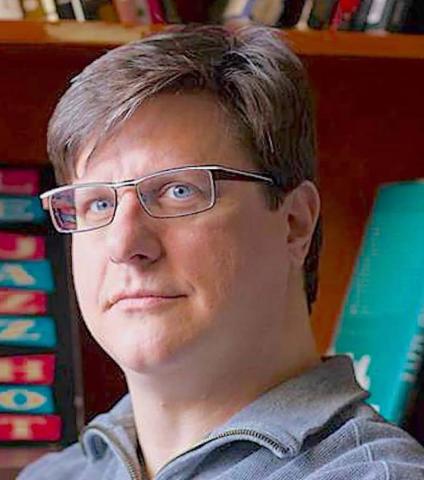Stephen Hanson, PhD
Director of Graduate Studies

Biography
Prof. Hanson is an Associate Professor in the Department of Family and Community Medicine, and the Director of Graduate Studies for the MS in Bioethics and Medical Humanities. He teaches and publishes in the areas of theories of medical ethics, research ethics, and end-of-life care and death and dying. He received his BA from Rice University in Houston, his PhD from Georgetown University in DC, and post-doctoral training at the University of Louisville.
Prof. Hanson has difficulty saying “no” to work, and consequently at the University of Louisville he was a member of both of the university’s Institutional Review Boards, vice chair of the hospital ethics committee, one of the founding faculty members of their interdisciplinary MA program in Health Care Ethics, and is still an active collaborator with the CERID COVID-19 Study Group. He has given talks for the medical library on research ethics in connection with the traveling Frankenstein exhibit (conclusion: Young Frankenstein is morally better than Victor Frankenstein), preventive ethics in disasters, and publication ethics with regard to immorally derived data. So far at Tulane he has managed to say no to one request made of him, but he’s really considering going back and rethinking that decision.
These opportunities and experiences have allowed Prof. Hanson to gain valuable clinical and practical experience that has really changed how he views medical ethics and the importance of practical experiential knowledge. This has led some of his colleagues in philosophy, a discipline in which atheists can happily create arguments for the existence of God and in which otherwise apparently sane people can argue that it is quite possible that nothing actually exists and then go to lunch, to sometimes look askance at him, as he seems to “care” what the “practical results” of the “theories he espouses” would be.
Contributions
(with Demetra Antimisiaris, PharmD) (2020) "Ethical Aspects of COVID-19 Antibody Testing," The University of Louisville Journal of Respiratory Infections: 4(1) Article 63. DOI: 10.18297/jri/vol4/iss1/63 https://ir.library.louisville.edu/jri/vol4/iss1/63
“Social Justice as a Necessary Guide to Public Health Disaster Response.” The Journal of Health Care Law and Policy, 2020. University of Maryland School of Law.
“‘He didn’t want to let his team down’: the challenge of dual loyalty for team physicians.” Journal of the Philosophy of Sport 45(3) 2018:215-227. DOI: 10.1080/00948705.2018.1486199
“Consent.” Macmillan Interdisciplinary Handbooks Philosophy: Medical Ethics. MacMillan Publishers. 2016:244-260.
Moral Acquaintances and Moral Decisions, Philosophy and Medicine series # 103, Springer Publishing Co. (paperback 2010)
